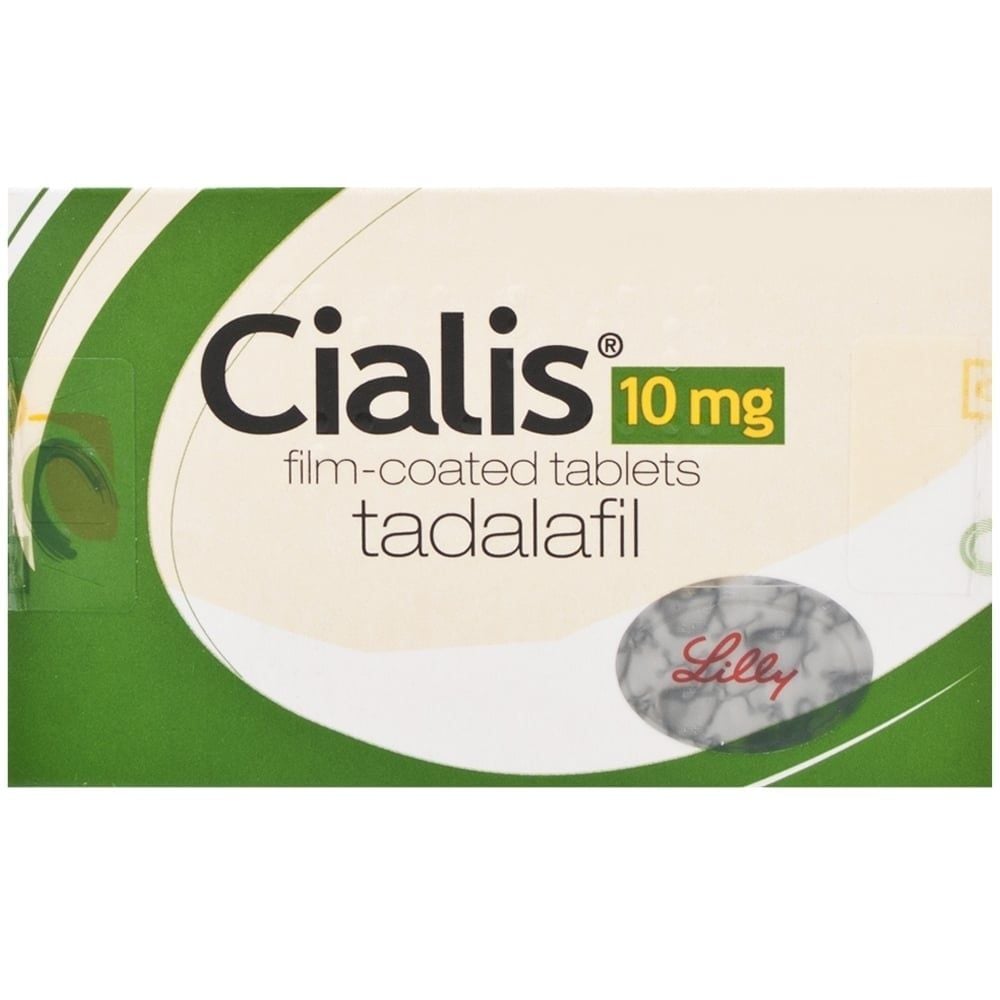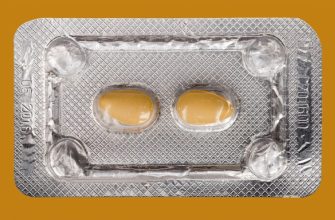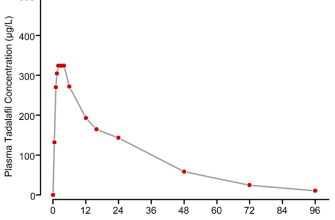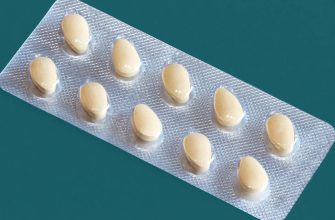Cialis 10mg is a common dosage for treating erectile dysfunction (ED) and benign prostatic hyperplasia (BPH). It works by increasing blood flow to the penis, facilitating an erection. This dosage is often a good starting point for many men, offering a balance between effectiveness and potential side effects. Remember to consult your doctor before starting any medication.
Before taking Cialis 10mg, discuss your medical history with your physician. Certain pre-existing conditions, like heart problems or low blood pressure, might influence the suitability of this medication. Your doctor will help determine if Cialis 10mg is the right choice for you and will advise on potential drug interactions with other medications you are currently taking.
Common side effects of Cialis 10mg can include headache, flushing, nasal congestion, and muscle aches. These are usually mild and temporary. However, serious side effects, such as vision changes or hearing loss, are rare but warrant immediate medical attention. Your doctor can explain potential risks and benefits in detail.
Cialis 10mg is generally taken as needed, about 30 minutes before sexual activity. However, your doctor might recommend a different dosing schedule depending on your individual needs and response to the medication. Always follow your doctor’s instructions precisely for optimal results and to minimize potential risks. Consistent communication with your healthcare provider is key to a safe and effective treatment plan.
- What is Cialis 10mg?
- Understanding the Dosage and its Purpose
- How Cialis 10mg Works in the Body
- Understanding the Mechanism
- Absorption and Duration
- Important Note
- Individual Responses
- Potential Side Effects and Precautions
- Serious Side Effects
- Precautions
- Medication Interactions
- Cialis 10mg: When to Consult a Doctor
What is Cialis 10mg?
Cialis 10mg is a medication containing tadalafil, used to treat erectile dysfunction (ED) and benign prostatic hyperplasia (BPH). It helps improve blood flow to the penis, facilitating an erection.
Here’s what you should know:
- Dosage: The 10mg dose is common, but your doctor will determine the appropriate dosage based on your individual needs and health.
- How it works: Tadalafil relaxes blood vessels, increasing blood flow to the penis when sexually stimulated. This effect can last for up to 36 hours.
- Taking Cialis: Swallow the tablet whole with water, generally as needed, not daily, unless prescribed otherwise. Avoid consuming grapefruit juice, as it can interact with the medication.
- Side effects: Common side effects include headache, flushing, nasal congestion, and indigestion. More serious side effects are rare but require immediate medical attention. Consult your doctor regarding any concerns.
- Precautions: Cialis is not suitable for everyone. Inform your doctor about all your current medications and health conditions, particularly heart problems, liver or kidney disease, or if you take nitrates.
Remember: Always consult your doctor before starting any new medication, including Cialis. They can help determine if it’s the right treatment for you and discuss potential risks and benefits. This information is not a substitute for professional medical advice.
- Seek professional medical advice: A doctor will provide a personalized assessment.
- Follow prescribed dosage: Adhering to your doctor’s instructions is crucial for safety and effectiveness.
- Report any side effects: Your doctor needs to know about any unusual symptoms you experience.
Understanding the Dosage and its Purpose
Cialis 10mg is a common dosage, often prescribed for erectile dysfunction (ED) and benign prostatic hyperplasia (BPH). The 10mg dose provides a balance between efficacy and tolerability for many men.
Dosage adjustments depend on individual responses and other health factors. Your doctor will determine the best starting dose for you. Some may find 10mg sufficient, while others may require a lower (5mg) or higher (20mg) dose.
Purpose: Cialis 10mg aims to improve blood flow to the penis, facilitating erections. For BPH, it helps relax the muscles in the prostate and bladder, easing urinary symptoms.
Important Note: This information is for educational purposes only and should not be considered medical advice. Always consult your physician before taking Cialis or any medication.
Frequency: Cialis 10mg is usually taken as needed, but your doctor might recommend a daily dose, depending on your needs.
Remember to discuss any side effects with your healthcare provider. They can help manage potential issues and adjust your treatment plan accordingly.
How Cialis 10mg Works in the Body
Cialis 10mg contains tadalafil, a medication that increases blood flow to the penis. This occurs through the inhibition of phosphodiesterase-5 (PDE5), an enzyme that breaks down cyclic guanosine monophosphate (cGMP). Higher cGMP levels relax blood vessel muscles, allowing more blood to flow into the penis, facilitating an erection.
Understanding the Mechanism
Tadalafil’s selective PDE5 inhibition is key. It primarily targets PDE5 in the penis, minimizing effects on other parts of the body. This targeted action reduces the likelihood of systemic side effects.
Absorption and Duration
After oral administration, tadalafil is absorbed into the bloodstream, reaching peak plasma concentrations in approximately two hours. Unlike some other medications, Cialis offers a notably long duration of action, potentially lasting up to 36 hours. This extended timeframe allows for spontaneity and flexibility.
Important Note
Cialis 10mg is only effective with sexual stimulation. The medication doesn’t create an erection independently; it enhances the body’s natural response to sexual arousal.
Individual Responses
Individual responses to Cialis 10mg can vary. Factors like age, overall health, and the presence of other medical conditions may influence its efficacy. Consult your doctor for personalized advice.
Potential Side Effects and Precautions
Cialis 10mg, like other medications, can cause side effects. The most common include headache, flushing, nasal congestion, and indigestion. These are usually mild and temporary. However, some users experience more serious, though less frequent, side effects.
Serious Side Effects
Seek immediate medical attention if you experience sudden vision loss, hearing loss, or chest pain. These can be signs of a serious medical problem. Prolonged erections (priapism) also require immediate medical intervention. This condition is rare but can cause permanent damage.
Precautions
Do not take Cialis if you have a history of heart problems, stroke, low blood pressure, or uncontrolled high blood pressure. It’s crucial to discuss your medical history thoroughly with your doctor before starting this medication. Also, inform your doctor about any other medications you are currently taking, including herbal supplements, as interactions can occur. Avoid grapefruit juice while taking Cialis, as it can increase blood levels of the medication. Cialis may affect your ability to drive or operate machinery; use caution.
Medication Interactions
Note: Cialis can interact negatively with nitrates (often used to treat angina). This combination can cause a dangerous drop in blood pressure. Always inform your doctor and pharmacist of all your medications.
Cialis 10mg: When to Consult a Doctor
Schedule a doctor’s appointment if you experience chest pain, irregular heartbeat, or prolonged erection (lasting more than four hours). These symptoms require immediate medical attention.
Consult your physician before starting Cialis 10mg if you have heart problems, low blood pressure, or a history of strokes. Pre-existing conditions need careful consideration before initiating treatment.
Discuss your complete medical history with your doctor, including any medications you’re taking, particularly nitrates or alpha-blockers, as interactions can occur.
If you experience vision changes, such as sudden vision loss or decreased hearing, seek medical advice immediately. These could indicate serious side effects.
Contact your doctor if you develop allergic reactions, including rashes, itching, or swelling. Allergic responses need prompt assessment and management.
Regular check-ups with your doctor are recommended while using Cialis 10mg to monitor your health and adjust the dosage if needed. Ongoing monitoring ensures optimal treatment and safety.
Remember: This information does not replace professional medical advice. Always follow your doctor’s instructions and discuss any concerns you may have.







